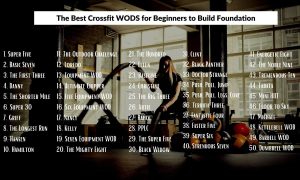
Bodybuilding is a demanding sport that requires intense training to build muscle, increase strength, and improve overall physique. However, with great intensity comes an increased risk of injuries. To continue progressing and avoid setbacks, it’s essential for bodybuilders to prioritize injury prevention techniques. In this article, we will discuss various strategies and practices that can significantly reduce the chances of getting injured during intense bodybuilding training.
1. Warm-ups and Stretching
Before engaging in any rigorous exercise, warm-ups and stretching should never be skipped. Warming up helps increase blood flow to the muscles, increases flexibility, and mentally prepares you for the upcoming workout. Dynamic stretching exercises, such as arm circles, leg swings, and trunk rotations, should be performed to target specific muscle groups being trained.
2. Progressive Overload
Progressive overload is a fundamental principle in bodybuilding, but it must be approached with caution to avoid overuse injuries. Gradually increasing weights, repetitions, or intensity over time helps the body adapt to new challenges. However, pushing too hard without giving the body sufficient recovery time can lead to overtraining and potential injury. Balancing progression with rest and recovery is vital for injury prevention.
3. Proper Form and Technique
Maintaining proper form and technique during exercises is crucial to prevent injuries. Poor form not only reduces the effectiveness of the workout but also puts unnecessary strain on muscles, tendons, and joints. Engaging a qualified trainer or coach can help ensure that you perform exercises correctly, minimizing the risk of injuries. Additionally, starting with lower weights and gradually increasing them while maintaining proper form is essential for long-term success.
4. Rest and Recovery
Rest and recovery are often underestimated in bodybuilding, but they play a crucial role in injury prevention. Muscles need time to repair and grow stronger after intense workouts. Overtraining can lead to fatigue, decreased performance, and increased susceptibility to injuries. Designing a well-structured training plan that includes rest days and ample sleep is vital. Additionally, incorporating techniques like foam rolling, deep tissue massages, and stretching can aid in recovery and reduce muscle soreness.
5. Balanced Nutrition
A balanced and nutritious diet is essential for injury prevention and overall health. Properly fueling your body with a variety of macronutrients and micronutrients is vital for optimal performance and recovery. Consuming enough protein, healthy fats, and complex carbohydrates provides the energy needed for intense training sessions and facilitates muscle repair. Adequate hydration is also crucial to prevent cramps and muscle strains.
6. Listen to Your Body
One of the most important aspects of injury prevention is listening to your body’s signals. Pain, discomfort, or signs of fatigue should not be ignored. Pushing through excessive pain can lead to severe injuries. Knowing when to dial back the intensity, take an extra day off, or seek medical advice is crucial for maintaining long-term training success and avoiding potential setbacks.
Conclusion
Intense bodybuilding training requires dedication, hard work, and focus. However, it is equally important to prioritize injury prevention to ensure long-term progress and overall well-being. By following warm-up routines, maintaining proper form, incorporating rest and recovery, fueling your body with proper nutrition, and listening to your body’s cues, you can minimize the risk of injuries and continue to achieve your bodybuilding goals safely.

